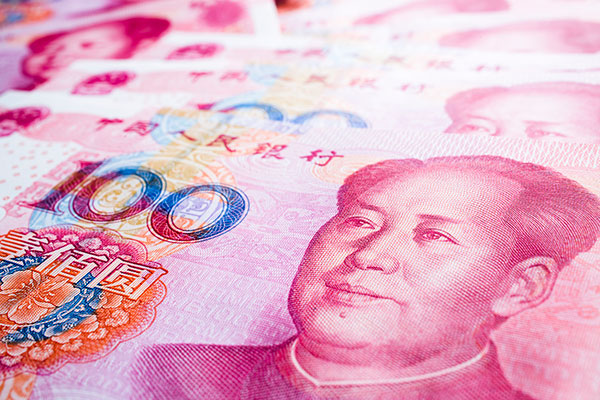The UK banks most exposed to China stimulus
As stimulus measures put a rocket under stocks exposed to China, one analyst has named its top pick of the international UK banking names.
1st October 2024 13:22
by Graeme Evans from interactive investor

The stimulus-driven correction of China-exposed Prudential (LSE:PRU) and Burberry Group (LSE:BRBY) faded a little today as attention in the City turned to the fortunes of the FTSE 100’s Asia-focused lenders.
They include HSBC Holdings (LSE:HSBA), whose shares have been largely unmoved by the far-reaching economic stimulus measures behind the biggest bounce for China stocks since 1996.
- Invest with ii: What is a Managed ISA? | Open a Managed ISA | Transfer an ISA
The performance of Standard Chartered (LSE:STAN), which last year generated about 5% of revenue, profit and loans in mainland China, has also been subdued following a 2% rise.
That’s in contrast to the 13% rebound for luxury goods group Burberry and 7% for Asia-facing insurer Prudential, rallies that ran out of steam today given the absence of further China news due to the Golden Week holiday.
Other beneficiaries have included miner Rio Tinto Registered Shares (LSE:RIO), which is up 12% in the past month as iron ore prices rise on hopes of improved Chinese infrastructure and investment demand.
A stronger mainland Chinese economy and more buoyant equity markets should be positive for offshore banking income, particularly for HSBC and Standard Chartered in Hong Kong.
- Why China just gave these FTSE 100 stocks a shove higher
- Stockwatch: buying this small-cap for its 9% dividend yield
- eyeQ: an opportunity that only comes once a year
The developments should also support HSBC’s drive to become the leading international provider for mass affluent and high net worth individuals in mainland China, an ambition that it backed up with the summer acquisition of Citi’s retail wealth management portfolio.
While the potential benefit of last week’s round of mortgage cuts is balanced by lower deposit rates, UBS said that China’s plan to inject CET1 capital into the country’s State-Owned Enterprise (SOE) banks may impact HSBC.
This may feature Bank of Communications Co Ltd Class H (SEHK:3328) (BoCom), which is part owned by HSBC after the FTSE 100-listed lender spent $1.7 billion on a 19% stake in 2004.
Details are unclear, but assuming that HSBC does not participate in any possible capital injection, UBS analysts said its base case estimates reduce the lender’s stake by the region of 10-20%. It also results in a 7-10% earnings per share dilution.
In February, HSBC’s fourth-quarter earnings were hit by a $3 billion writedown caused by a review of BoCom’s balance sheet value.
It said at the time: “BoCom remains a strong partner in China, and we remain focused on maximising the mutual value of our partnership.
“Our positive views on the medium and long-term structural growth opportunities in mainland China are unchanged.”
- Sign up to our free newsletter for investment ideas, latest news and award-winning analysis
- Insider: four recovery bets plus FTSE 100 chief pockets £29m
- Stockwatch: should you buy this recovery story?
UBS pointed out today mainland China delivered 11% of HSBC’s half-year pre-tax profits, with two-thirds of that delivered by its associate stake in BoCom. Three-quarters of non-BoCom profit was from Global Banking & Markets with retail still slightly loss-making.
The Swiss bank has a Neutral recommendation and 658p price target for HSBC, with Standard Chartered its top pick of the international UK banking names, backed up with a 905p price target. The lender trades at six times forecast 2025 earnings compared with HSBC at 7.8 times.
UBS adds: “We think that StanChart's Corporate and Investment bank has built a higher growth and broader range of revenue streams than the market credits, all of which are helped by a potentially stronger Chinese economy.”
These articles are provided for information purposes only. Occasionally, an opinion about whether to buy or sell a specific investment may be provided by third parties. The content is not intended to be a personal recommendation to buy or sell any financial instrument or product, or to adopt any investment strategy as it is not provided based on an assessment of your investing knowledge and experience, your financial situation or your investment objectives. The value of your investments, and the income derived from them, may go down as well as up. You may not get back all the money that you invest. The investments referred to in this article may not be suitable for all investors, and if in doubt, an investor should seek advice from a qualified investment adviser.
Full performance can be found on the company or index summary page on the interactive investor website. Simply click on the company's or index name highlighted in the article.